Team Tiger
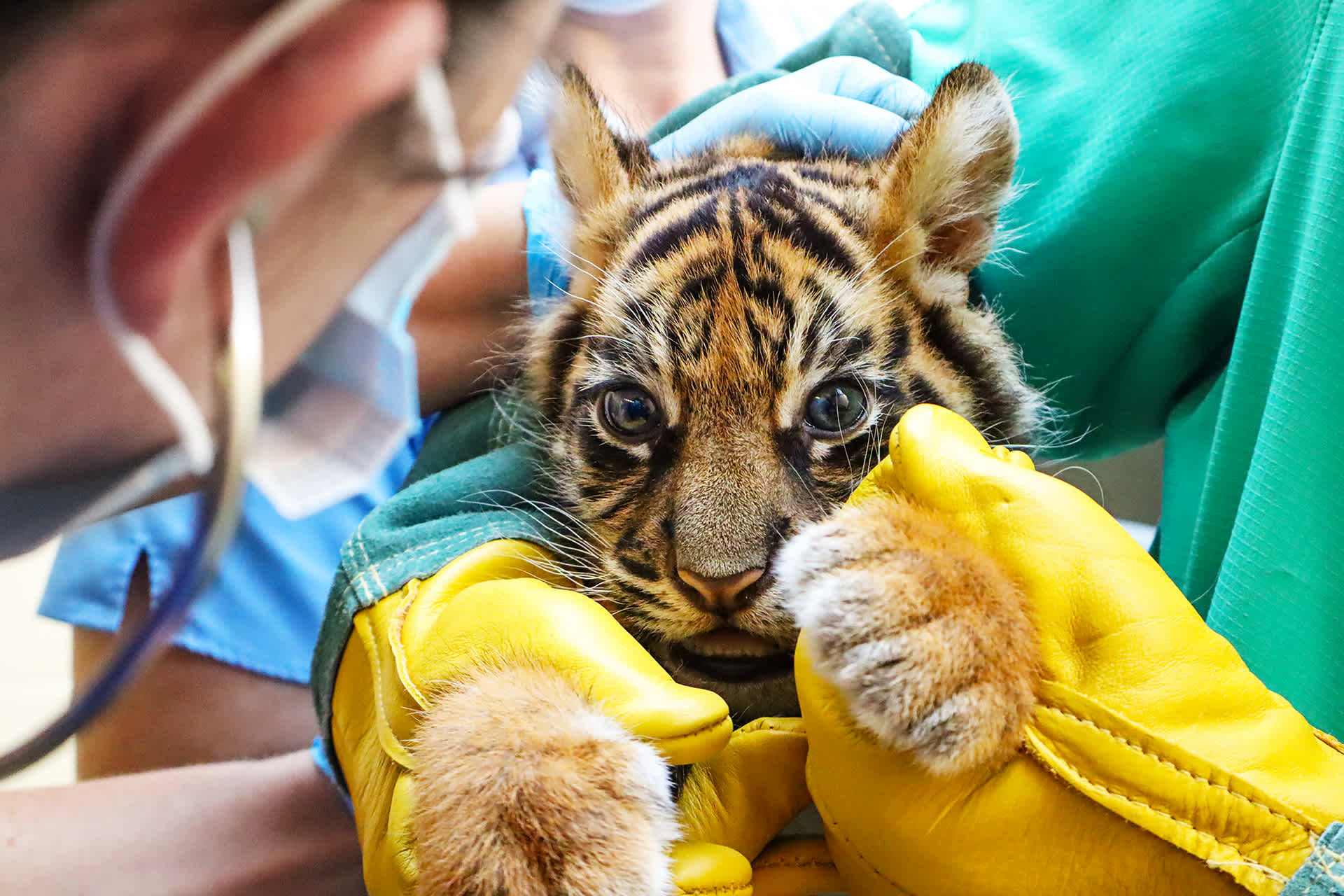
You’ve probably gone to a birthday party for a person. How about for a tiger? A tiger at Disney’s Animal Kingdom, in Bay Lake, Florida, recently celebrated a big one. He turned a year old on September 26—and the park staff threw him a party.
Bakso, whose name refers to an Indonesian meatball, is a Sumatran tiger. This is a critically endangered species (see “Tigers in Trouble”). Bakso was the first tiger born at the Animal Kingdom in seven years. It takes a whole team to care for him.
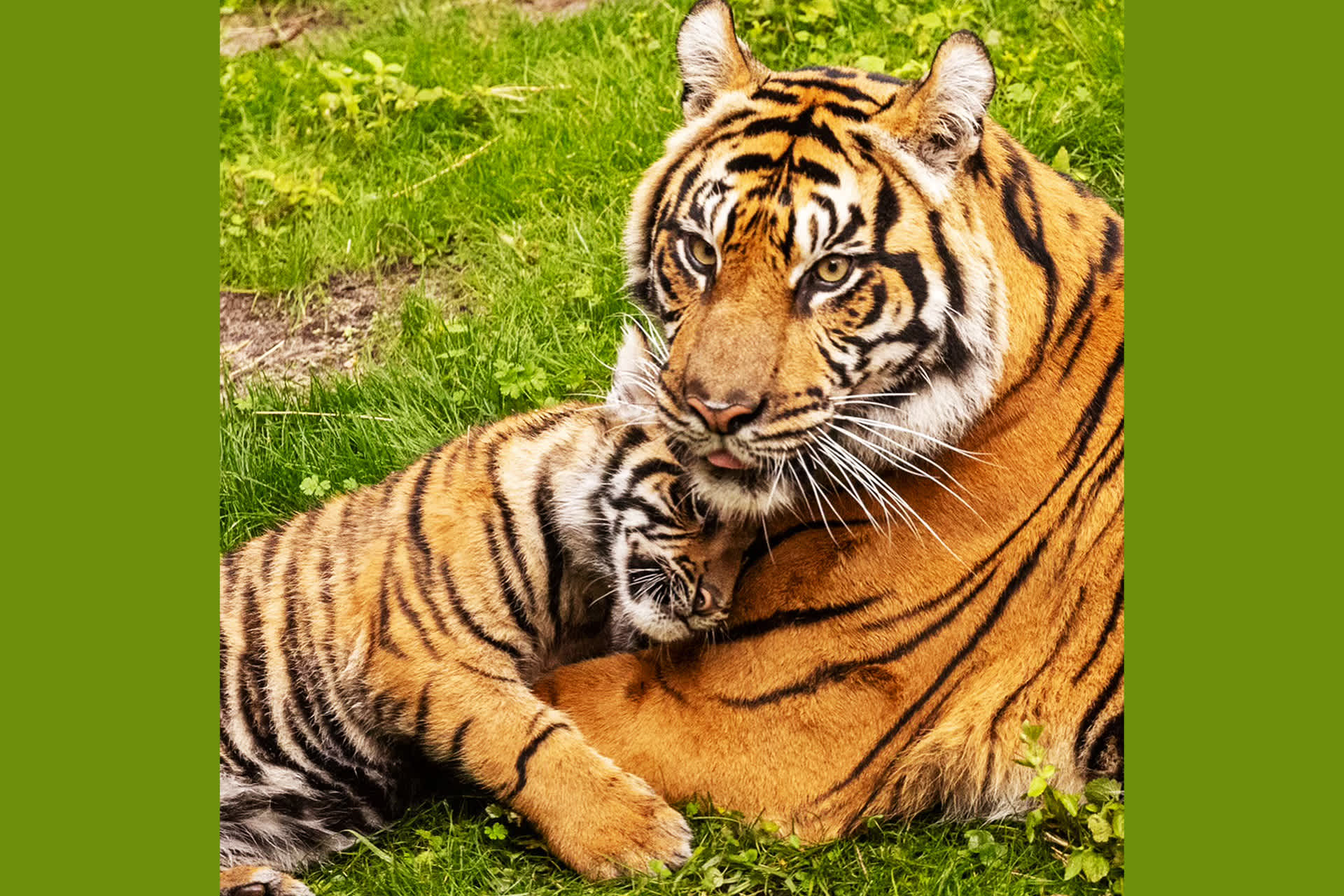
A Keeper’s Day
Animal keeper Erin Heavey makes sure Bakso and the other tigers at the park are safe and happy. She told TIME for Kids she starts each day by checking in on them “to make sure they did well overnight.” After that, Heavey and her team give the tigers breakfast and train them using positive reinforcement. “Bakso is still young,” Heavey says, “so he’s learning some new behaviors.”
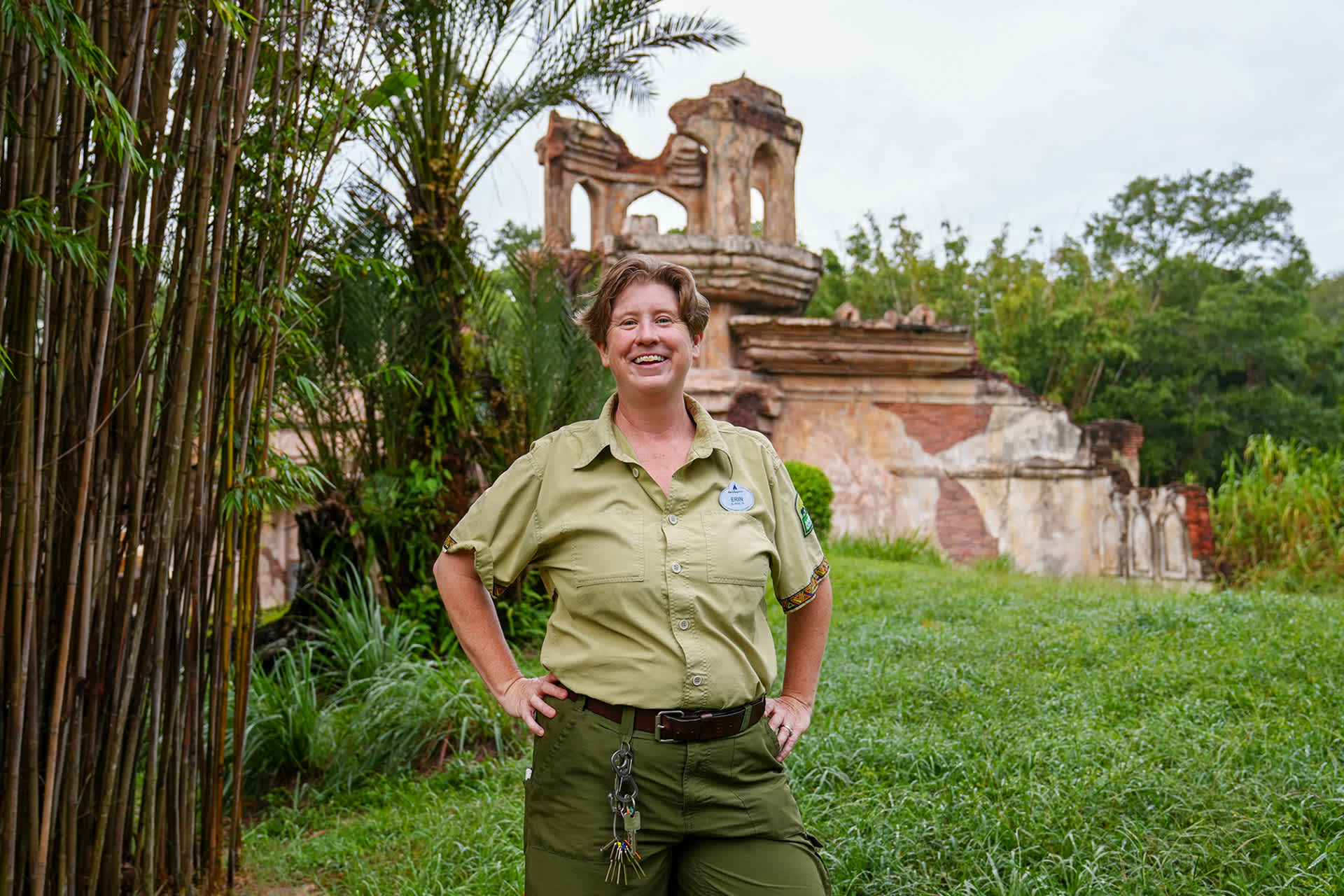
Bakso loves to play. Heavey says he enjoys climbing, exploring, and testing out new toys. She plans enrichment activities to keep him busy. For his birthday celebration, Heavey wrapped toys in paper for Bakso to open. Bakso also got some of his favorite treats, such as goat’s milk, during the party.
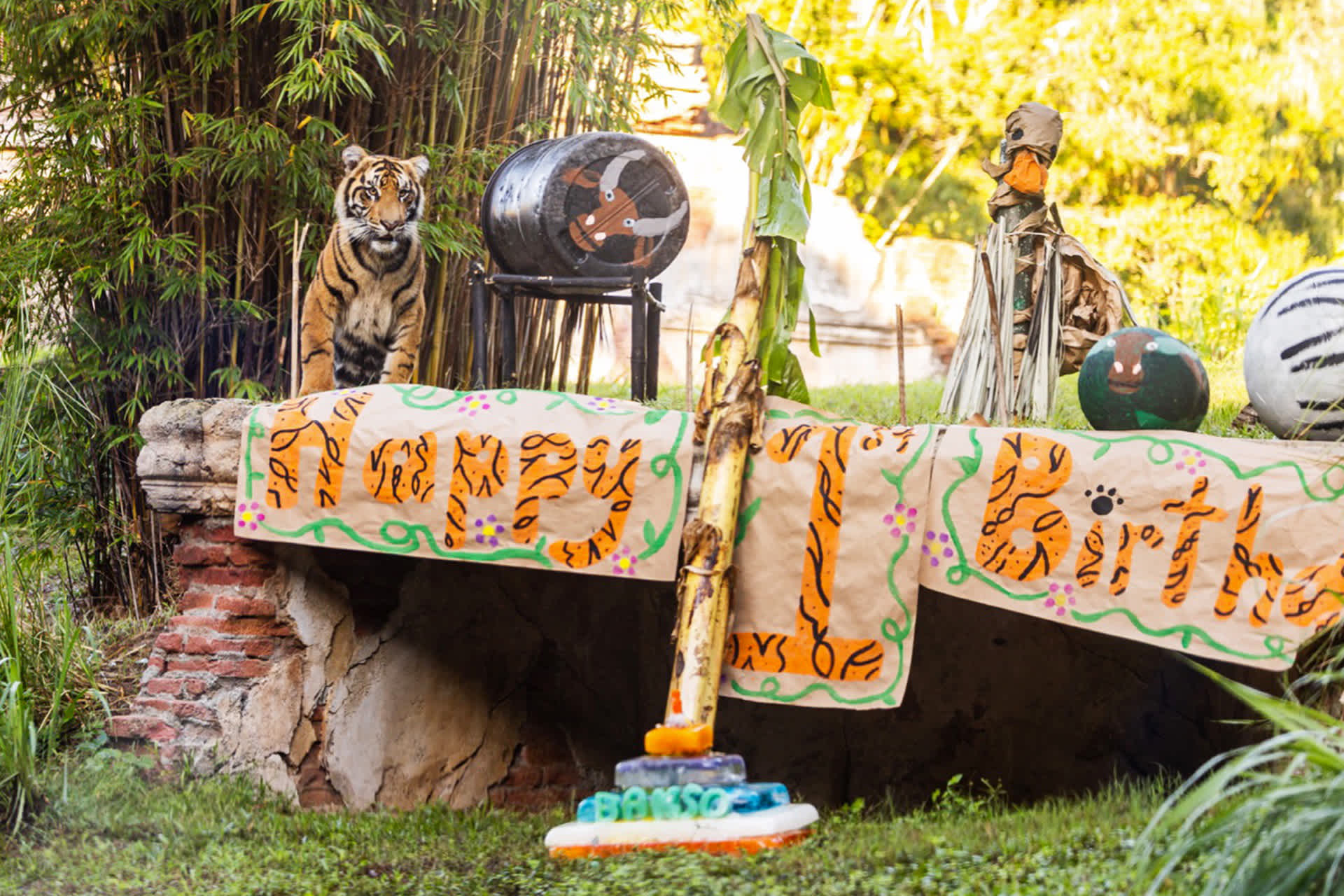
Heavey offers advice to kids who dream of becoming animal keepers. First, she says, focus on school. She recommends studying science and math, but points out that there are many paths to a career with animals. “I have a degree in zoology, but I know a lot of people have backgrounds in other fields: biology, animal science, or agriculture,” she says. “Even if you’re not very science-motivated, there’s still space for anyone who cares about protecting animals and wild places.”
A Veterinarian’s View
Natalie Mylniczenko is a veterinarian at Animal Kingdom. She’s been monitoring Bakso’s health since before he was born. She first saw him via ultrasound while he was still inside his mom, a tiger named Sohni. “That was pretty incredible,” Mylniczenko told TFK.
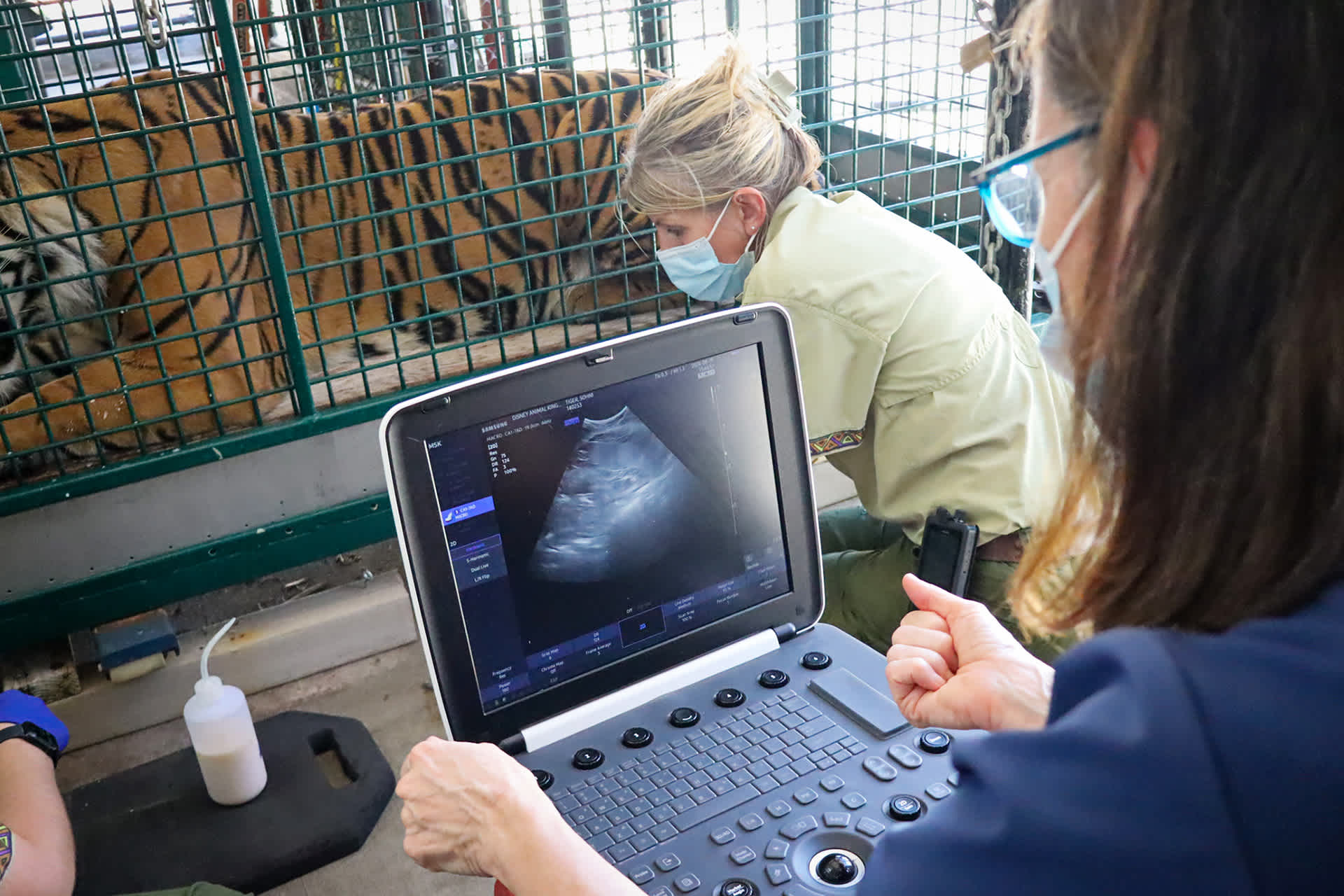
Mylniczenko and her team now give Bakso regular checkups. “We listen to his lungs, look at his eyes and ears,” she says. Bakso also has to get shots. As he grows bigger, these checkups get more difficult. The behaviors Heavey is working on with Bakso will help him cooperate as doctors check his paws and teeth.
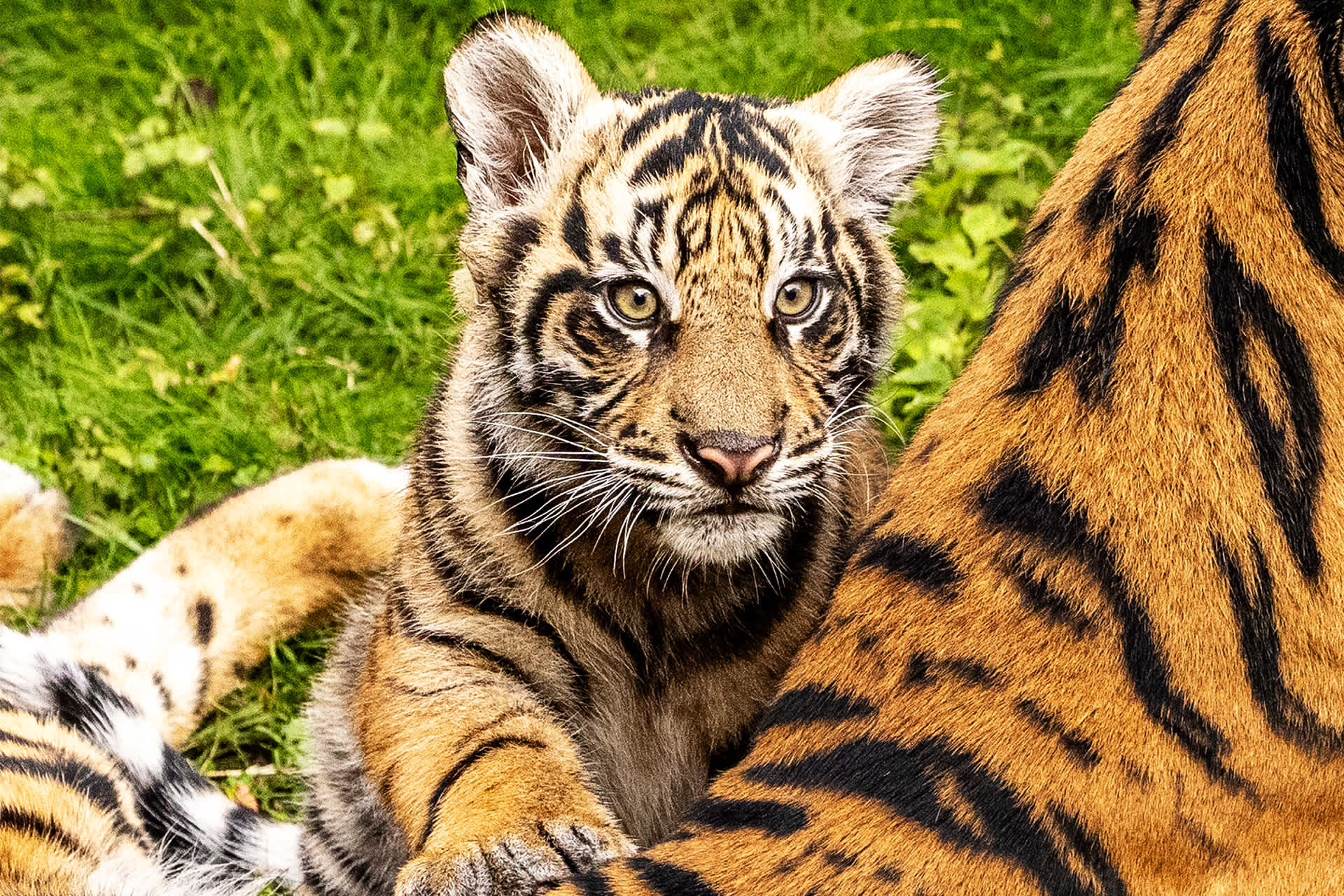
Speaking of teeth: Mylniczenko explains that tiger cubs lose baby teeth, just like kids do. “All carnivores get bothered when they have loose teeth,” she says. To ease the discomfort, Bakso enjoys chewing on big rubber dog toys.
Mylniczenko says the best part of being a vet is constantly learning. “It doesn’t matter how long I’ve been a veterinarian, I still have to open up a book and learn things,” she says. “The animals teach me a lot of things every day.”
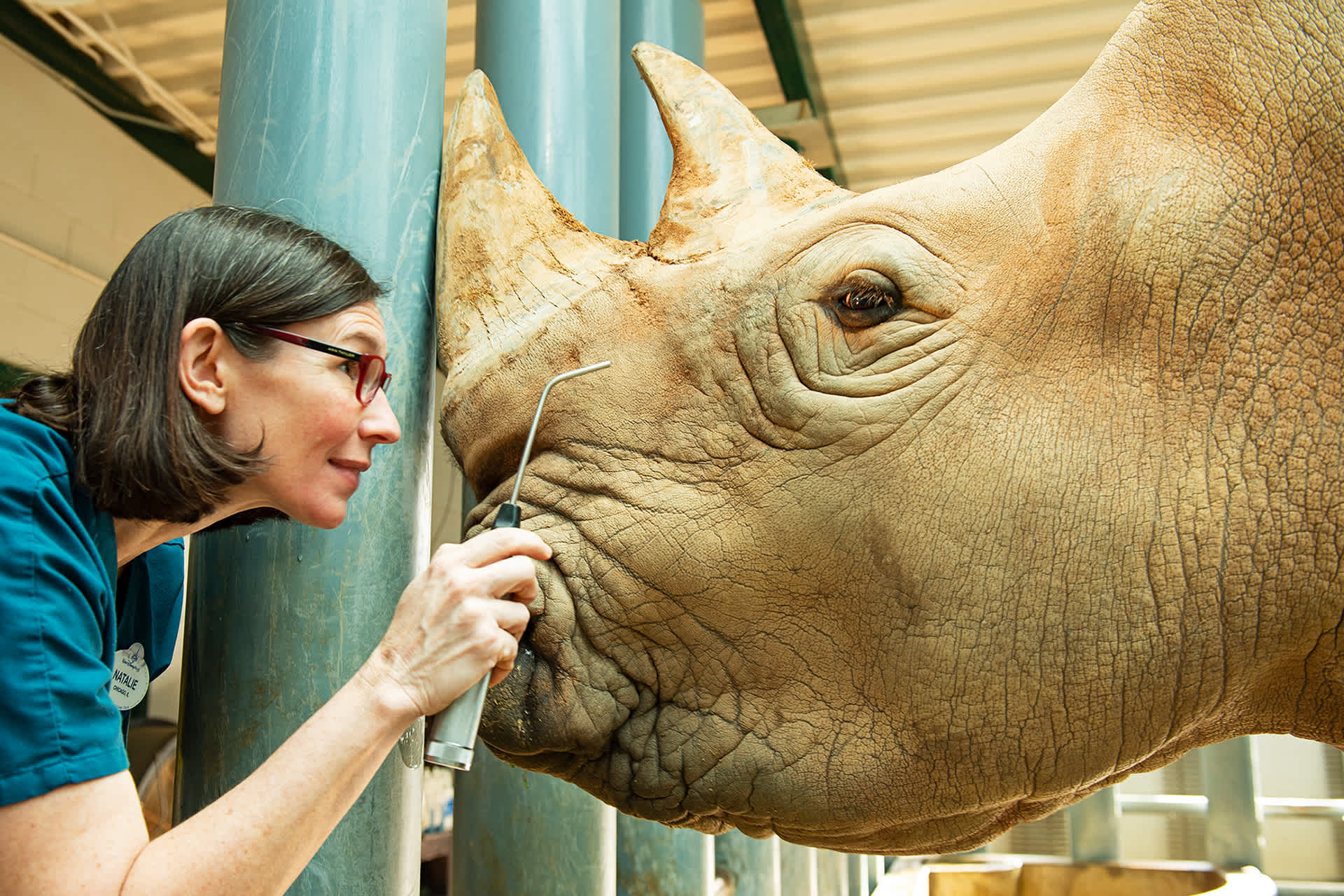
Bakso’s birthday is a reminder of how caring for endangered animals takes teamwork. The reward, Heavey says, is “seeing the tigers get to be tigers.”
Tigers in Trouble
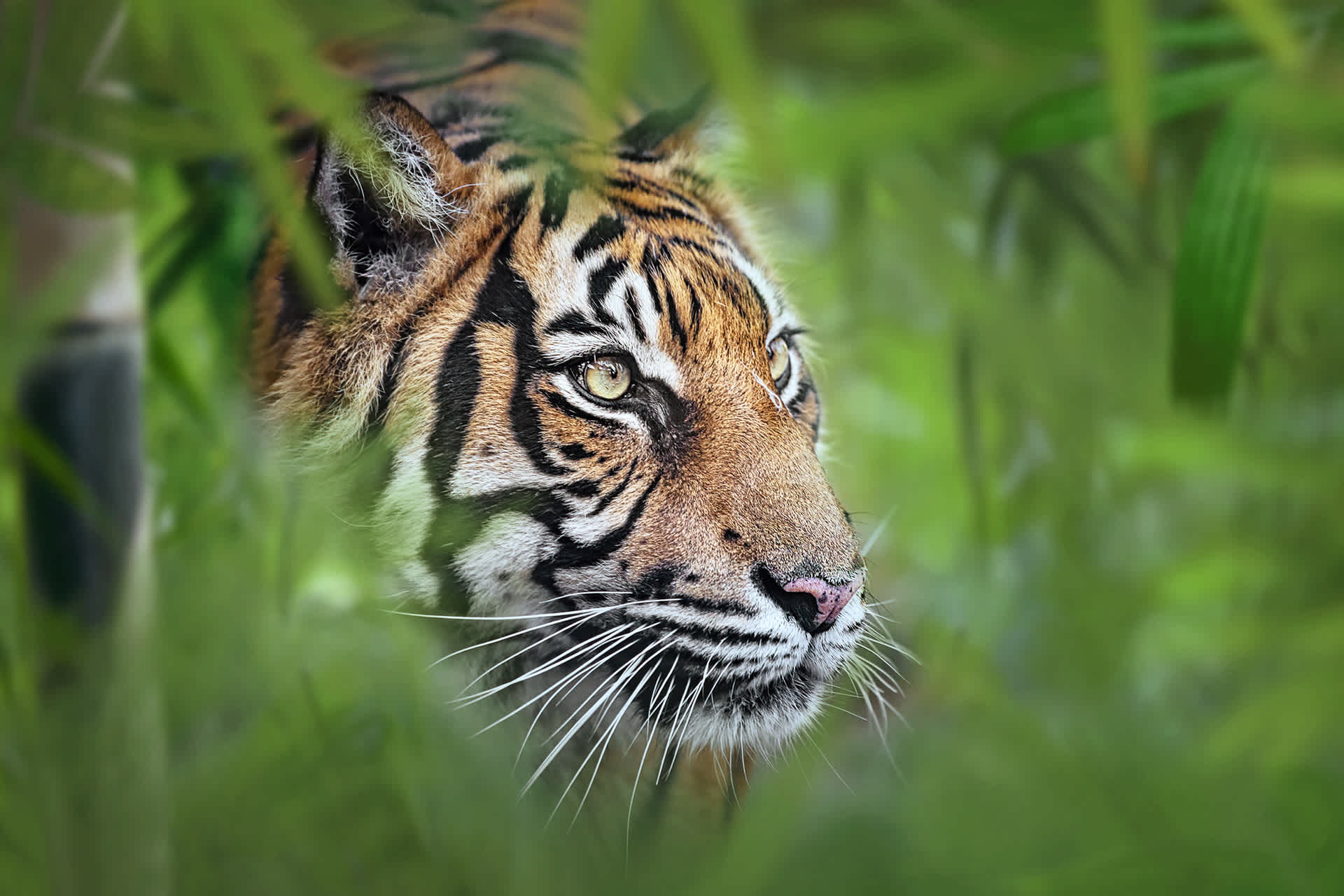
Bakso is a Sumatran tiger, a type found on the Indonesian island of Sumatra. These cats are critically endangered, which means they face a very high risk of going extinct. Experts estimate that there are fewer than 600 Sumatran tigers left in the wild. This is due to a combination of hunting and habitat loss. They live in tropical and mountain forests. When people cut down trees, tigers have a harder time finding food and shelter.

